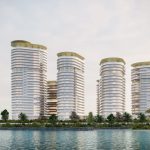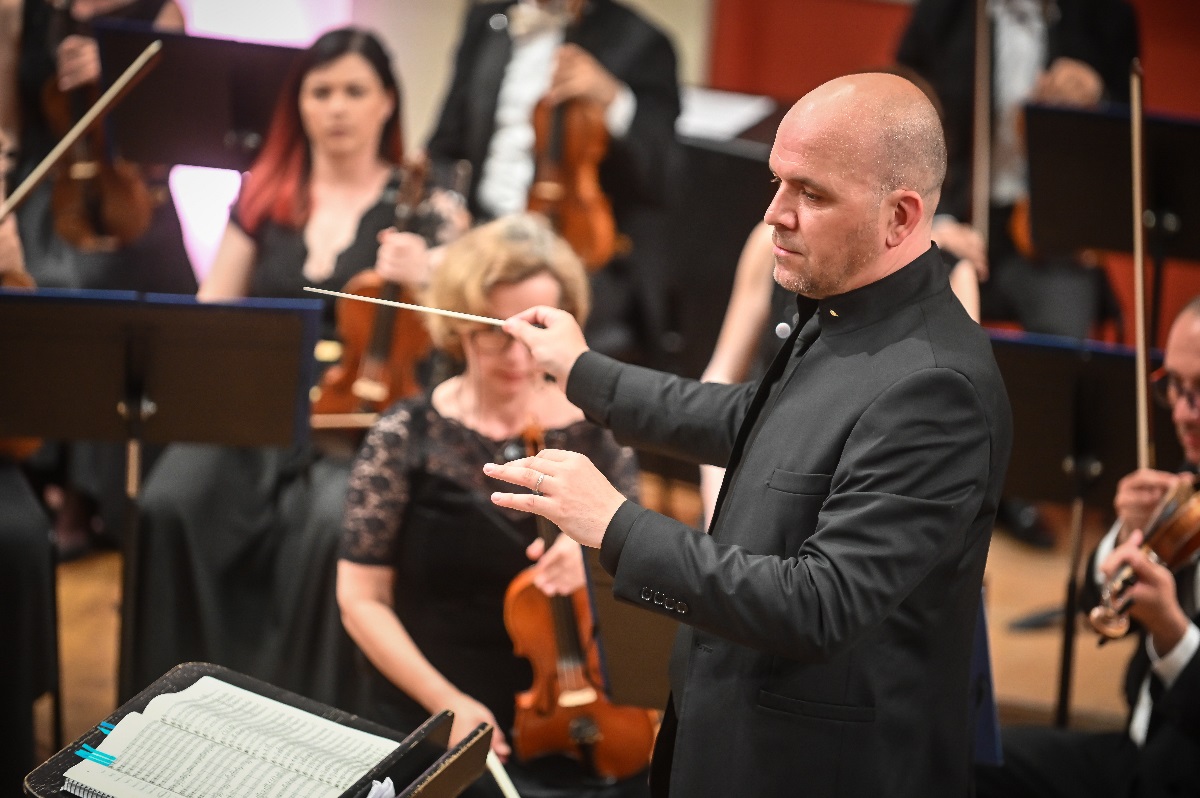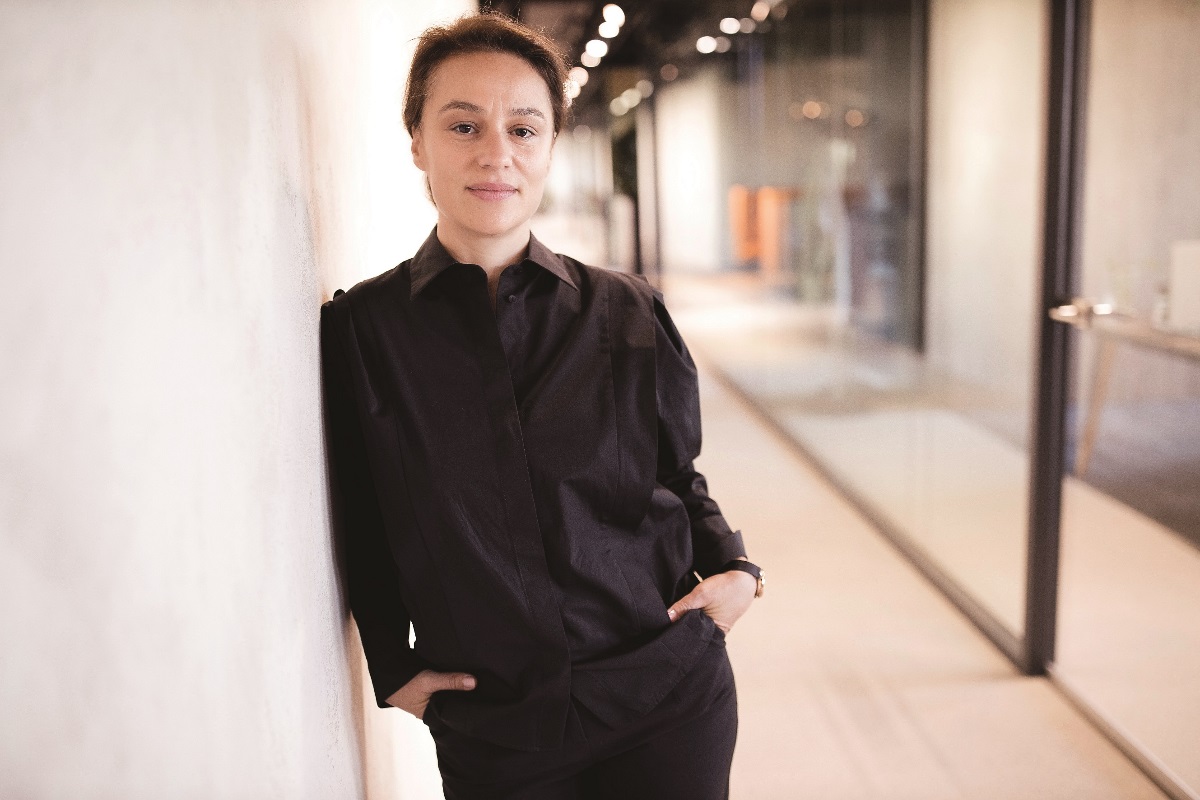
H.E. Andrew Noble, British Ambassador to Romania: „We are seeing a significant increase in British interest in this market and I would encourage British companies to come and see for themselves what this country has to offer”
In the summer of 2018, you took over the position of Great Britain’s Ambassador in Romania, in over three decades from the first contact with our country, as secretary within Great Britain’s Embassy in Bucharest. How did you perceive the communist Romania of the ‘80s and how profound are the changes arising here, in the period after December 1989?
I was very happy to be posted back to Romania, having left a very different country after three years as a junior diplomat from 1983-86. Communist Romania, as I experienced it, was a harsh place. No heating in the winter, little or no food that you could buy without queuing half the night. Romanians weren’t allowed to speak to foreigners and, since this was the Cold War, we were very suspicious about anyone who wanted to talk to us. We knew that any conversation was a three-way one, including Securitate, and that was very unsettling. But life for Romanians was clearly far worse, as we were able to leave the country. I think the worst thing was the absence of any political or economic dialogue about an alternative path for the country. The Ceaușescus and the system had Romania in a stranglehold. It’s so exciting, therefore, to see the changes this country has been through in the past 30 years. You are now a high-income country, though with a severe poverty problem. In terms of people to people interactions, there has been a fantastic change in the past three decades – over 10,000 Romanian students study in the UK, around 600,000 Romanians work and live there, including some thousands of health professionals who have worked superbly during this crisis. And in Romania, is a large number of British NGOs doing a great deal of good for the most vulnerable in Romania, in all walks of life – from supporting people with disabilities and terminal illnesses, to child protection and fight against modern slavery.
I said at the beginning of my mandate here that the priority would be to continue to build on the excellent bilateral relations that we have enjoyed in the past decades. UK has left the EU, but we remain in Europe, and Romania is amongst our best allies in this region. We will continue to work on security and economic matters, and on promoting UK values further from rule of law, media freedom and good governance to gender equality, inclusion and tackling poverty and climate change. A top priority for me is fighting human trafficking – an area where I can only point to the very good bilateral co-operation between our law enforcement institutions.
How did you settle in and what surprised you after your return to Romania?
For me, it was a version of coming home. Crossing the border at Arad seemed eerily like my 1980s experience! My family thought it was a great and exotic adventure since they had never been to the country before. Our first stop was Hunyadi Castle in Hunedoara which they adored and we spent the night in a Sibiu. That, for me, was one of the first shocks. My photos of Sibiu in the 80s are of a drab, lifeless place, so I was delighted that it had returned to the international crossroads of history, a magnet for domestic and international tourists and the sight of a major international drama festival. Then, settling into life in cartierul Primăverii was weird as this was the only bit of northern Bucharest I hadn’t visited in the 1980s – as it was closed to all but the nomenklatura, and that’s where I was going to live. Since then, we have adapted quickly to the delights of modern Bucharest. We adore the markets, parks, the music and especially the wonderful people. My 1980s Romanian teacher in London had told me how friendly Romanians were and how delicious the food and I’m glad to say that this has not changed. I have marvellous Romanian colleagues and friends and love the food too much! I made Sarmale on TV and we’re loving our home-made zacuscă, vișinată and all types of dulceață.
Softer issues aside, I am very much impressed with Romania’s excellent workforce – very well trained, excellent English, great IT literacy. There are obvious development hubs around the country’s big cities, and the economy as a whole is going well, with exciting opportunities for British investors.
Romania is now a hugely changed country, a thriving one, but there are things that need to progress. One example comes to my mind: earlier this month, I met my fellow ambassadors to discuss the best approach to the issue of the Roma & inclusion. It’s all interconnected – exclusion, education, access to healthcare and poverty. We need to tackle problems in less developed, especially in rural areas. Also, there is still work to be done on the country’s good governance. There has been progress on the rule of law, but also big challenges. I have a sense that public services are not delivered with the end-user in mind: this is another area where we are keen to share UK experience, as we had to grapple with the same issues in the past.
His Royal Highness Prince Charles is a true promoter of local tourism, being very familiar with Romania, a country which he praised on numerous occasions. In a market of tourism that is increasingly competitive, which are the advantages of our country? When the time allows you, where do you like to travel in Romania?
I think that the vast unspoiled landscapes of Romania and its unique blend of histories and cultures is its main competitive edge. Where else can you find so many examples of the Orient and Occident living side by side in harmony? I’m delighted by the sustainably developed villages and fortified churches of Transilvania and I’m especially proud of the immense role played by the UK-founded Mihai Eminescu Trust which does superb work to preserve this heritage. But there are delights all over the country, to name just a few: the Danube Delta, Maramureș.
Before the pandemic, I travelled quite a lot in Romania – last year I drove over 3,000 kilometres during my summer leave. I’ve been on Transfăgărășan but not yet the Transalpina. I love the back roads and the absence of lorries. I have been pleased to help launch the beautiful, 1,200 km long walking trail Via Transilvanica crossing Romania from north to south. I would love to see the south west of Romania – Porțile de Fier, Orșova, the Mehedinți county – and explore Muntenia more when better times allow us to resume our normal lives and interactions. That’s what I miss in the present – the face to face contact with colleagues and friends, and with people from all around the country.
Which are the main projects in which you are involved in from the start of your mandate and the priorities assumed for the following period?
The UK and Romania have had a Strategic Partnership since 2003 reflecting our shared values and our common understanding of the threats, challenges and opportunities that the 21st century presents. The Strategic Partnership has strengthened the bilateral relationship by fostering stronger links in foreign policy, trade and prosperity, the fight against organised cross-border crime, counter-terrorism and cultural promotion. Our collaboration has grown impressively since the first iteration of the Strategic Partnership, so, together with the Romanian Government, and as we are currently celebrating this year 140 years of bilateral relations, we are reviewing the Partnership to reflect the broadness of the relationship and the opportunities for further joint work. This includes bilateral trade, economic diplomacy, investments going both ways, people-to-people links, defence and security and foreign policy challenges.
The most important subject on the European public agenda was, up to the beginning of the coronavirus pandemic, the United Kingdom’s withdrawal from the European Union. Which is the current status of the negotiations, under the conditions in which the withdrawal agreement ratified by both parties provides a transition period until 31, December, 2020?
I can’t say much, as the negotiations are continuing in order to bridge the significant gaps which remain between our positions in the most difficult areas, but we are ready to find a deal if this is also the serious intent of the EU. We welcome this intense period, where for the first time we are negotiating on legal texts and across all areas at the same time. I wish it had been possible to get to this stage much earlier.
For our part, we remain clear that the best and most established means of regulating the relationship between two sovereign and autonomous parties is one based on a free trade agreement of the type Canada has. As both sides have made clear, it takes two to reach an agreement. It is entirely possible that negotiations will not succeed. If so, the UK will end the transition period on Australia terms and will prosper in doing so.
It is essential now that businesses, hauliers, and travellers prepare actively for the end of the transition period, since change is coming, whether an agreement is reached or not. As an Embassy we are actively helping Romanian organisations and companies to prepare to continue our excellent two-way trade and our people-to-people exchanges.
Which will be, in your opinion, the implications of BREXIT, from the perspective of our bilateral relations? What will change in the lives of the Romanian citizens that are currently working in the UK and what are the matters that must be known by those who wish to access the British employment market in the future?
I am sure that our bilateral relation will continue to contribute to the prosperity, security and global power of our two countries and of Europe. The UK wishes to build on its special and profound partnership with Romania from 2021 onwards. Most important areas are trade relations, education, security, law enforcement and justice cooperation. We work closely in all these areas, and we have joint interests and values, and also a strong foundation to develop on.
We value the contribution Romanians have brought and will continue to bring to the British economy and culture. Most of the Romanians already in the UK have registered with the Settled Status Scheme, thus acquiring settled or pre-settled status (depending on the number of years that they have already lived in the UK). Additionally, those who arrive in the UK before the end of the transition period on 31 December 2020, and their relevant family members, will be eligible for the EU Settlement Scheme. They have until 30 June 2021 to make an application under that scheme.
From 1 January 2021 the United Kingdom will implement a new Points-Based Immigration System, applicable to EU nationals, Romanians included. As part of the new immigration system, Romanians can come to the UK as visitors for six months without the need to obtain a visa. A visitor may enter the UK multiple times during that period and can undertake a range of activities such as coming on holiday, attending meetings and conferences and taking short courses of study.
Those who wish to stay for periods longer than six months, to work, study or live in the UK will need to apply for a visa. They will be able to apply on GOV.UK website and will need to demonstrate that they meet the relevant criteria and score the number of points required for the visa they are applying for. For those seeking long term employment, there will be dedicated routes i.e. a Skilled Worker route and a Global Talent route. Romanians who are not resident in the UK will need to travel with a passport starting in October 2021, whereas UK residents can continue to use an ID card until 31 December 2025.
In the middle of this year, you had a meeting with the Romanian Minister of Economy, Energy and Business Environment, Virgil-Daniel Popescu. What is the latest information regarding the trade dynamics and the evolution forecasted for the following period? How is the BRCC (British Romanian Chamber of Commerce) involved in and what is its role in promoting and developing the bilateral economic relations?
Before the pandemic, bilateral trade was strong, with a total of goods and services (exports plus imports) between the UK and Romania of £5.8bn in the four quarters to the end of Q4 2019. Total UK exports to Romania amounted to £2.4bn in the same period (an increase of 4.3% or £100m compared to the four quarters to the end of Q4 2018). Total UK imports from Romania were £3.3bn (a decrease of 5.0% or £174m compared to the four quarters to the end of Q4 2018). The pandemic may take its toll on every aspect of life, including trade, but we are closely cooperating with BRCC and other Romanian and British institutions in encouraging trade both ways. We have a large and very experienced trade team in the Embassy working with British companies for accessing the Romanian market or for developing their presence here, and we also have a regional team advising and supporting Romanian companies that wish to enter the British market. BRCC is helping us disseminate information about the post-transition period and how the corporate sector should prepare for that.
Which are the economic sectors that are attractive for the UK companies interested in extending their business in Romania and how can the British investments be stimulated?
The UK is the 7th largest investor in Romania. Over 6,000 companies with British capital participation have invested here so far, in a variety of sectors, both in services and manufacturing. Take for example, Endava, an IT company that employs over 2,500 people in Romania, while in Iași and Bacău, SCC Services Romania employs over 1,200 people providing technical support services in 9 languages for over 2,500 clients in 75 countries. Telecom is also an area where British investors have a strong stake, Vodafone being one of the top player on the local market with an expanding presence, having taken over UPC Romania’s operations from Liberty Global. Also, London Stock Exchange Group has an operations centre in Bucharest, and Liberty House Group bought the steel mill in Galați investing in a strategic sector of the Romanian economy. Pretty many success stories that we hope to replicate in the coming years. I could quote many others.
Romania has an enormous potential and can represent an extremely attractive market. However, better infrastructure, fiscal and judicial predictably, coherent public investment and workforce expansion and education policies are key factors which can only help investment prospects.
This interview will be published in the first issue of the TheBizz Magazine. Through its editorial content and the events organised, our publication aims to become a platform of information, promotion and interaction between the foreign investors and the local business and administrative environment. Please address a message to our readers on behalf of Great Britain’s Embassy in Bucharest.
This is a country of massive potential, on top of the huge advances that it has already made since reform really kicked off in 1996. Its people, natural resources, geographical position, climate and market size all make it a go-to destination for investors and other economic actors. We are seeing a significant increase in British interest in this market and I would encourage British companies to come and see for themselves what this country has to offer. As the representative of the British Government here, I am keen to develop our partnership with the new Government that takes office following the elections to help overcome some of the problems that have developed over recent years, as well as the longer term challenges. We have a Royal family that traces its antecedents to Romania, so we have a joint past, and I see only a very bright future together. Mult succes, România, hai să dezvoltăm relația noastră în toate domeniile!
An Interview by Ioan Dornescu
Share
Share















